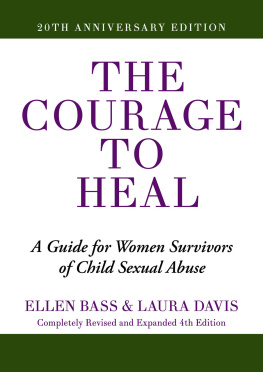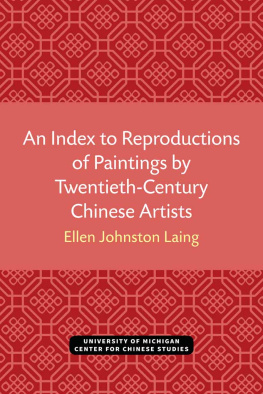CHAPTER I THE RIGHT OF THE CHILD TO CHOOSE HIS PARENTS
Filled with sad memories or eager hopes, people waited for the turn of the century, and as the clock struck twelve, felt innumerable undefined forebodings. They felt that the new century would certainly give them only one thing, peace. They felt that those who are labouring to-day would witness no new development in that process of change to which they had consciously or unconsciously contributed their quota.
The events at the turn of the century caused the new century to be represented as a small naked child, descending upon the earth, but drawing himself back in terror at the sight of a world bristling with weapons, a world in which for the opening century there was not an inch of free ground to set one's foot upon. Many people thought over the significance of this picture; they thought how in economic and in actual warfare all the lower passions of man were still aroused; how despite all the tremendous development of civilisation in the century just passed, man had not yet succeeded in giving to the struggle for existence nobler forms. Certainly to the question why this still is so, very different answers were given. Some contented themselves with declaring, after consideration, that things must remain just as they are, since human nature remains the same; that hunger, the propagation of the race, the desire for gold and power, will always control the course of the world. Others again were convinced that if the teaching which has tried in vain for nineteen hundred years to transform the course of the world could one day become a living reality in the souls of men, swords would be turned into pruning hooks.
My conviction is just the opposite. It is that nothing will be different in the mass except in so far as human nature itself is transformed, and that this transformation will take place, not when the whole of humanity becomes Christian, but when the whole of humanity awakens to the consciousness of the "holiness of generation." This consciousness will make the central work of society the new race, its origin, its management, and its education; about these all morals, all laws, all social arrangements will be grouped. This will form the point of view from which all other questions will be judged, all other regulations made. Up to now we have only heard in academic speeches and in pedagogical essays that the training of youth is the highest function of a nation. In reality, in the family, in the school, and in the state, quite other standards are put in the foreground.
The new view of the "holiness of generation" will not be held by mankind until it has seriously abandoned the Christian point of view and taken the view, born thousands of years ago, whose victory has been first foreshadowed in the century just completed.
The thought of development not only throws light on the course of the world that lies behind us, continued through millions of years, with its final and highest point in man; it throws light, too, on the way we have to travel over; it shows us that we physically and psychically are ever in the process of becoming. While earlier days regarded man as a fixed phenomenon, in his physical and psychical relations, with qualities that might be perfected but could not be transformed, it is now known that he can re-create himself. Instead of a fallen man, we see an incompleted man, out of whom, by infinite modifications in an infinite space of time, a new being can come into existence. Almost every day brings new information about hitherto unsuspected possibilities; tells us of power extended physically or psychically. We hear of a closer reciprocal action between the external and internal world; of the mastery over disease, of the prolongation of life and youth; of increased insight into the laws of physical and psychical origins. People even speak of giving incurable blind men a new kind of capacity of sight, of being able to call back to life the dead; all this and much else which it must be allowed still belongs simply to the region of hypothesis, to what psychical and physical investigators reckon among possibilities. But there are enough great results analysed already to show that the transformations made by man before he became a human being are far from being the last word of his genesis. He who declares to-day that human nature always remains the same, that is, remains just as it did in those petty thousands of years in which our race became conscious of itself, shows in making this statement that he stands on the same level of reflection as an ichthyosaurus of the Jura period, that apparently had not even an intimation of man as a possibility of the future.
But he who knows that man has become what he now is under constant transformations, recognises the possibility of so influencing his future development that a higher type of man will be produced. The human will is found to be a decisive factor in the production of the higher types in the world of animal and plant life. With what concerns our own race, the improvement of the type of man, the ennobling of the human race, the accidental still prevails in both exalted and lower forms. But civilisation should make man conscious of an end and responsible in all these spheres where up to the present he has acted only by impulse, without responsibility. In no respect has culture remained more backward than in those things which are decisive for the formation of a new and higher race of mankind.
It will take the thorough influence of the scientific view of humanity to restore the full nave conviction, belonging to the ancient world, of the significance of the body. In the later period of antiquity, in Socrates and Plato, the soul began to look down upon the body. The Renaissance tried to reconcile the two but the effort was unfortunately not serious enough. Boldness it did not lack, but its effort was not successful in carrying out a task which Goethe himself said must be approached both with boldness and with serious purpose. Only now that we know how soul and body together build up or undermine one another, people are beginning to demand again a second higher innocence in relation to the holiness and the rights of the body.
A Danish writer has shown how the Mosaic Seventh Commandment sinks back into nothing, as soon as one sees that marriage is only an accidental social form for the living together of two people, while the ethically decisive factor is the way they live together. In morality there is taking place a general displacement from objective laws of direction and compulsion to the subjective basis from which actions proceed. Ethics become an ethic of character, a matter dealing with the constitution of the temperament. We demand, we forgive, or we judge according to the inner constitution of the individual; we do not readily call an action immoral which only in an external point of view does not harmonise with the law or is opposed to the law. In each particular case we decide according to the inner circumstances of the individual. Applying this point of view to marriage, we find in the first place that this form offers no guarantee that the proper disposition towards the relation of the two sexes is present. This can exist as well outside of as within marriage. Many noble and earnest human beings prefer for their relation the freer form as the more moral one. But as the result of this, the significance of the Seventh Commandment is altered, that states explicitly that every relationship of sex outside of marriage is immoral. People have commenced already to experiment with unions outside of marriage. People are looking for new forms for the common life between man and woman. The whole problem is being made the subject of debate.











